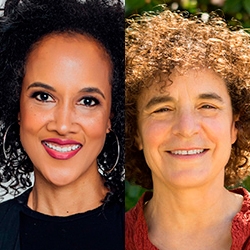

Search Results: connection
-
Trainer Tip: The surest way to enjoy life is to do things that meet your needs. If you don’t enjoy a particular activity, consider the need you hope to meet by doing it. For instance, for each item you want to do consider the needs you're trying to meet. Connect to the joy of that need. Then for each ask: “How would I feel if I delayed finishing this item?”. Consider which items you want to continue, pause, or reprioritize. This can help increase life enjoyment.
-
Discover and embrace the inner chatter beneath your words to deepen self-connection.
-
- Easier and steadier access to presence, awareness and self-connection in relationships and challenging situations
- Illumination of basic Buddhist and NVC principles
- A deeper understanding of how to live the Buddhist precepts of non-harming, mindful speech and deep listening
- An introduction to useful tools for families and communities to create a culture of Nonviolent Communication
-
Interactive dialogue addresses common questions for new NVC facilitators and trainers.
-
- Learn the essentials of NVC from its founder, Dr. Marshall Rosenberg
- Discover how to connect with others with empathy, integrity, and peace
- Understand the origins of NVC and how to apply it within yourself and in your life
- Experience how empathy supports healing in your most intimate relationships— and in the world at large!
-
I’m Jeff Brown, Executive Director of the Center for Nonviolent Communication. Mary asked me to be a guest writer for this newsletter, and it’s allowed me to look deeply at the role NVC plays in my life, personally and professionally— especially in running a successful NVC organization.
As the director of an NGO, I am grateful to have learned Nonviolent Communication. I utilize the principles constantly, and I’m not sure how I would survive without them.
-
We only have this decade to make radical changes to avert crossing over into an unlivable Earth. What's essential is a critical mass of people with capacity to respond to many enormous, daunting social-environmental challenges. This means on a wider scale, responding to conflict, fear, hate, injustice and violence with the ability to see our commonality underlying our differences. And to feel part of a larger whole so we can birth natural caring, togetherness, and cooperation.
-
Trainer Tip: Sometimes we need to empathize with a person before he can hear our anger. Consider that all anger is an expression of an unmet need. If we focus on the need, rather than the actions, we are more likely to connect compassionately with other people. Be aware of opportunities to empathize with someone’s anger today.
-
Express feelings and needs clearly to foster connection and understanding.
-
Developing interpersonal relationship skills in congregations is integral to working with the conflicts that arise. These skills can be applied to any spiritual community.
-
Trainer tip: From the NVC perspective, everything someone says or does is either a “please” or a “thank you". In our culture, saying “thank you” usually involves an appreciation in the form of judgment or evaluation. Remember, whether we judge someone as good or bad, judgments and evaluations can create disconnect or tension. Instead, notice how their actions have enriched life, and what feelings it stimulated.
-
- Start here to discover how Nonviolent Communication (NVC) will enrich and deepen all your relationships.
- You'll love this practical and enlightening approach to empathic listening and effective self-expression.
- Learn on your schedule with self-paced learning modules in this 30-day program.
-
Imagine a world where mediation is a basic life skill taught early to support cooperation.
-
Trainer Tip: Be aware of opportunities to be honest holding the intention to connect with people. If you do this with the elements of brevity, directness, and respect, you can increase your chances of being heard. If they don't like your honesty, consider switching to empathizing with them by listening to their feelings and needs.
-
- Find your voice in response to words you hear as racist
- Build bridges across significant differences of opinion
- Become a powerful ally for the racial justice movement
-
Trainer Tip: Mary explains the NVC principle known as the "protective use of force."
-
-
It is 5:30 in the morning. I am sitting in a medical facility waiting for my wife, Kim, who has just gone in for a minor surgical procedure. I have only had a couple of hours of sleep and I can barely keep my eyes open. I am not very worried, but am a little worried about Kim. The kind of worry that happens to me when anyone I love (human or animal) is put “under” anesthesia.
-
Trainer tip: When you want to thank someone expressing what that person did, how you felt about and what needs were met for you, can provide the other person with more information. It can also help her more fully understand how she contributed to you, and deepen your connection with her.
-
Trainer tip: When we focus on needs further possibilities are more likely to open up. When we focus on a particular strategy, our world can feel scarce and conflicts can arise. Resolution comes when we value everyone’s needs and seek mutually satisfying solutions. We can ask for support towards this outcome.
Quick Links

Stay in Touch!
We value your privacy, won't share your email address and you can easily unsubscribe any time.

















